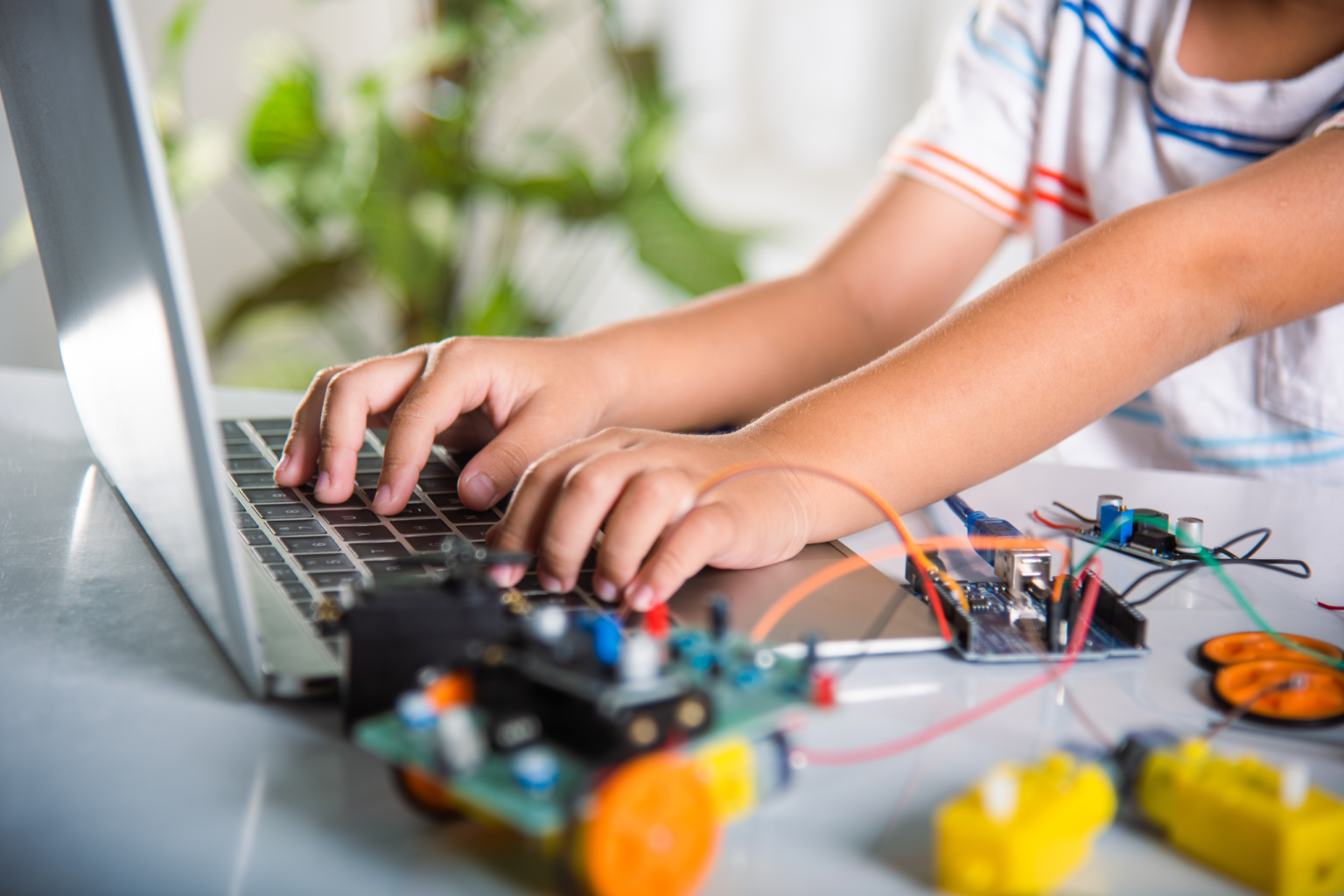
Coding is very much an up-and-coming activity these days. We live in the information era and are surrounded by technology at all times, becoming increasingly reliant on apps, gadgets and especially now AI. Naturally we can see the benefits of learning to code in this landscape, but should children be learning to code?
Educational organisations and governments around the world seem to think so and have been developing resources to aid the teaching of coding to younger and younger kids. 2007 saw the development of Scratch, a block based visual coding language aimed at elementary school aged kids, with Scratch Junior aimed at even younger kids coming out in 2014.
Why this effort to make coding more accessible to children? On one hand it is clear that the development of software is going to be a key role of future humans as coding becomes the new lingua franca of the world and a key to success in the future job market. On the other hand however, when made accessible in this way coding offers immense positive developmental effects on the young mind, which we will go into in this article. Technology will not be going away anytime soon, so let us learn to adapt and to thrive in this new technological jungle!
Developing Creative Confidence
Whilst not the most talked about, one of the best reasons for everyone to learn coding at a young age is to develop creativity. This is most prominent in game design, as it gives children the opportunity to engage in story-telling as well as bringing in their own art and even music. Play is the most natural way for kids to learn, so what better way to learn than to build games that allow you to play with people around the world at the click of a button! On platforms like Scratch, the games children build are accessible around the world which therefore gives a safe world-wide audience to a child’s creativity, which can be a really beneficial influence on its development.
Nurturing Logical Thinking
On the other hand what is more talked about when the benefits of coding as children is discussed is the way it aids the development of logical thinking, benefits that are still real and tangible. As you work with computers you are exposed to their highly structured ways of thinking, relying on algorithms, conditions and repetitions to achieve extremely reliable results. This is different to our more emotional human ways of getting from A to B, but when understood it can provide a very useful alternative frame of reference that helps us to decompose complex tasks into clearly defined smaller bites, allowing journeys of a thousand steps to be undertaken with far more confidence and success than before.
Encouraging Mathematical Interest
Another hard skill that coding unlocks in children is a greater appreciation for mathematics. In the classroom, maths can often be seen as both arcane and highly irrelevant. Singapore-style maths focused on physical tokens and real-life situations can bring children’s interest so far, but as it becomes more abstract with the inclusion of algebra and trigonometry many student’s interest fades out as the practical benefits for learning become harder to see. This is particularly unfortunate as there is a high correlation between mathematical ability and future earnings in life, so finding ways to keep maths relevant in a child’s mind is especially important. Coding does this by demonstrating the practical uses of mathematical formulas in a way that can never be matched in a classroom, whether that be a sorting algorithm built in python that saves hundreds of hours in manual searching or a friction variable in Scratch that slows down movement in a predictable and realistic way. This can then keep mathematics relevant in students minds, as they bring what they learn in maths class to coding and vice versa.
Teaching Persistence and Resilience
Coding can also have a large and positive impact on the soft skills of children, in particular in developing persistence and resilience in times of adversity. As any programmer will tell you, the times that code works perfectly the first time can usually be counted on one hand. Bugs are an inherent and unavoidable part of the development process which to the uninitiated can seem demotivating and disheartening. However, the practice of coming across problems and retracing your steps, checking and double checking your work, testing different sections of your code to determine which part has malfunctioned, before eventually diagnosing and rectifying your mistakes comes with it a wealth of positive lessons. Firstly, it is a humbling process that involves accepting your mistakes as well as often looking to others to help you. The constant cycle of making mistakes and learning from them leads to an inherent understanding and adoption of a growth mindset, no one is born with innate coding knowledge but instead gets there by making innumerable mistakes and learning from each and every one. The development of skills like coding is a marathon not a sprint, and the persistence and resilience taught by the process can be utilised in all parts of life moving forwards.
Focus
Finally, one of the most important skills coding can teach a child is focus. In a cruel twist of fate technology has been especially complicit in our decreasing attention spans, from short-form video content, a barrage of advertising on our senses all day and use of our phones around the clock in general, but it also holds the key to regaining our focus. Coding is fundamentally an cerebral activity, requiring mental focus and maintaining a constant train of thought throughout to achieve results. Distractions disrupt that train of thought, leading to lapses of concentration that we notice when we have specific tasks to complete. This then teaches us to limit our distractions and dedicate our minds fully to one activity, a vital skill in our modern information overloaded world. Coding can be a wonderful activity that enables us to reach a state of flow, an incredibly beneficial mental state that has links to increased happiness, higher intrinsic motivation, greater creativity, and better emotional regulation – all vital skills to instill in the next generation.
There are so many great lessons that can be learned from picking up coding at a young age. Games are well-loved and popular, by learning how to make them we can transform that passion into the development of valuable and life-long skills, encouraging both logical thinking and creativity. The earlier we start the deeper we take in these lessons, unlocking so much potential in the future. Let’s start coding today!
